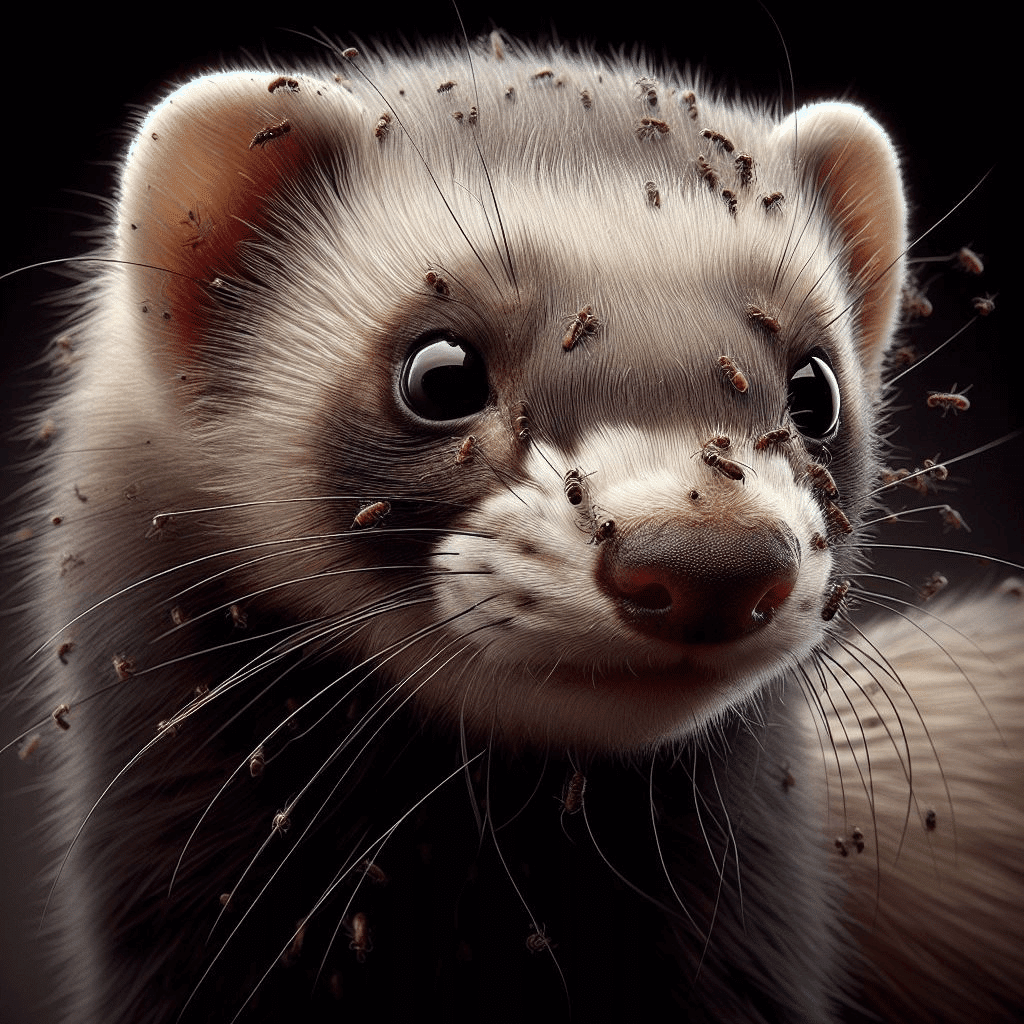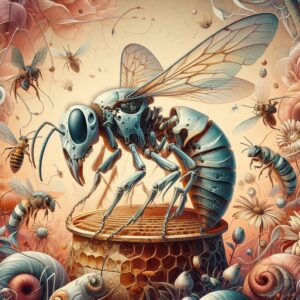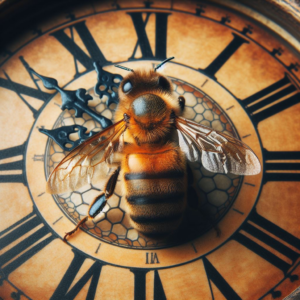Ferrets, those furry and mischievous critters, have been captivating pet lovers for centuries. These small mammals belong to the Mustelidae family and are known for their playful nature and curious personalities.
Domesticated ferrets, scientifically named Mustela putorius furo, are descendants of wild European polecats. They make great companions due to their social nature and unique behaviors.
Ferrets have become increasingly popular as pets because of their charming characteristics. With sleek bodies, beady eyes, and a twitchy nose, they effortlessly steal the hearts of their owners.
These intelligent creatures possess remarkable agility and can squeeze themselves into tight spaces with ease. Their playful antics provide endless entertainment for both adults and children alike.
The common concern of fleas in pets
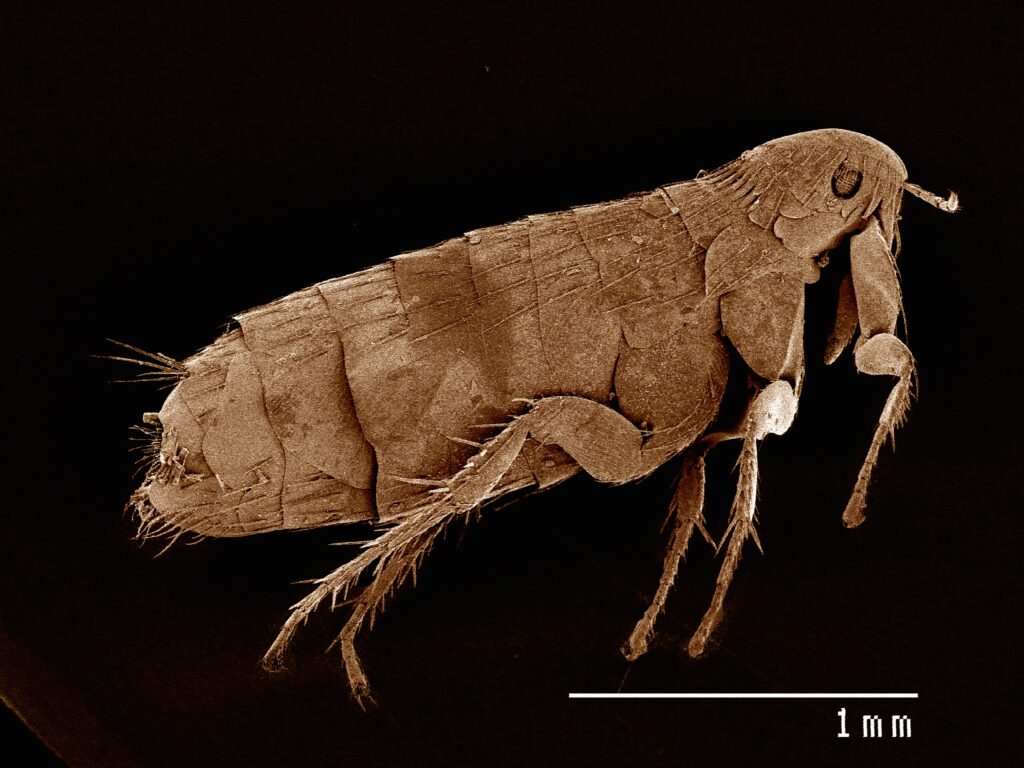
However, as with any pet ownership adventure, there are certain challenges that arise when caring for ferrets. One common concern among pet owners is the presence of fleas on their beloved companions. Fleas are tiny parasitic insects that feed on the blood of animals such as dogs, cats, and yes, even ferrets.
These pesky parasites can cause discomfort and health issues for our furry friends. Flea bites can lead to intense itching and skin irritation in ferrets just like they do in other animals.
A flea infestation can quickly spread throughout a ferret’s cage or living area if not addressed promptly. It’s important for ferret owners to be proactive in preventing flea infestations or controlling them effectively should an infestation occur.
Understanding how fleas affect our delicate little friends is crucial in providing them with optimal care and ensuring their well-being. So let’s dive into the world of fleas: how they impact ferrets’ lives and what we can do to keep these tiny intruders at bay.
Can Ferrets Get Fleas?
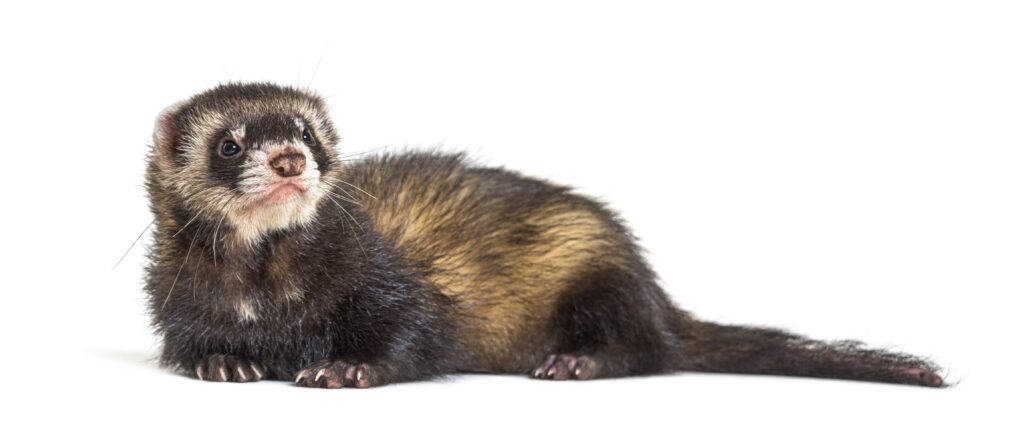
Yes, Ferrets Can Indeed Get Fleas
Ferrets, those adorable and mischievous little creatures, are not immune to the bothersome presence of fleas. While they may not be as common in ferrets as in other pets like dogs and cats, they can still become infested with these tiny pests if proper preventive measures aren’t taken. It’s important for ferret owners to understand that fleas can latch onto their furry companions and cause discomfort and potential health issues if left untreated.
Reasons Why Ferrets are Susceptible to Fleas
Ferrets are particularly susceptible to flea infestations due to a few reasons. Firstly, their fur provides an ideal hiding place for fleas. These small insects can easily navigate through the dense fur of a ferret, making it difficult for pet owners to detect their presence.
Additionally, the warm and cozy environment within a ferret’s fur is perfect for flea reproduction. Furthermore, ferrets’ curious nature often leads them into situations where they come into contact with other animals that may carry fleas.
Whether it’s playing with other pets in the household or encountering wild animals while exploring outdoors, there is always a risk of fleas jumping from one host to another. Another factor that contributes to their susceptibility is their tendency to scratch themselves frequently.
This scratching behavior can accidentally dislodge adult fleas or flea droppings from one part of the ferret’s body onto another area of the ferret’s fur. As a result, these pesky critters find new spots on the ferret’s body where they can continue breeding and feeding on blood.
In addition to this vulnerability, it’s worth noting that even indoor-only ferrets are not completely safe from flea infestations. Flea eggs can be brought into your home on your clothing, shoes, or even from another infested pet.
These tiny eggs can remain dormant for quite some time and eventually hatch into flea larvae, leading to an infestation that can cause you and your ferret to lose sleep. So, it’s clear that ferrets are not exempt from the annoyance and potential health risks associated with fleas.
Understanding their susceptibility to these pests is crucial for implementing effective preventive measures for cat flea treatment and maintaining a flea-free environment for both you and your beloved ferret. Stay tuned for the upcoming sections where we will delve deeper into understanding the life cycle of fleas and how to prevent and treat flea infestations in ferrets.
Understanding fleas and their life cycle
Detailed explanation of the flea life cycle, from egg to adult flea
To comprehend how to combat fleas effectively, it’s crucial to delve into the complex life cycle of these pesky critters. The flea life cycle consists of four stages: eggs, larvae, pupae, and adults.
Let’s explore each stage in detail. Fleas begin their journey as minuscule eggs that are barely visible to the naked eye.
These tiny ovals are often laid on the host animal but can also be found in its environment, such as in your pet ferret’s bedding or hiding within carpet fibers. A single female flea can lay hundreds of eggs during her lifespan.
Once hatched, these flea eggs transform into larvae. These worm-like creatures are equipped with bristle-like hairs that help them move through their surroundings—be it your carpet or your ferret’s favorite snuggle spot.
The larvae feed on various organic matter like flea dirt (feces), dried blood from previous feedings, and skin cells they find in their environment. After a few molting stages as larvae, they enter the pupal stage—a transformative period where they cocoon themselves within a sticky silk-like substance known as a cocoon.
During this time, fleas are incredibly resilient and can remain dormant for weeks or even months if environmental conditions aren’t favorable. Emerges adulthood—a fully developed adult flea ready to wreak havoc on your furry friend.
Adult fleas jump onto passing animals (including cats or other pets) and start feeding on their blood within seconds! They mate and begin laying batches of eggs (up to 50 per day!)—starting a new generation if left unchecked.
Discuss the importance of breaking the flea life cycle for effective control
Now that we’ve unveiled the intricate steps involved in the flea life cycle, it becomes evident that merely targeting adult fleas won’t solve your ferret’s flea problem. To ensure effective flea control and prevent reinfestation, it’s essential to break the life cycle at multiple stages.
If you solely focus on adult fleas, you’ll miss the hidden flea population residing in various developmental stages (eggs, larvae, pupae). These immature fleas will eventually emerge as adults and continue to torment your pet.
By interrupting their life cycle, you can tackle the entire population and prevent new generations from emerging. To break this cycle effectively, a combination of preventive and treatment measures is necessary.
Regular grooming of your pet ferret using flea combs helps remove adult fleas while also providing an opportunity to inspect for any signs of infestation or skin irritation. Additionally, treating your ferret flea treatment with appropriate flea medications (specifically formulated for ferrets) can target various stages of the flea life cycle effectively.
Remember that environmental control is paramount too. Vacuuming regularly (including all carpets and areas where your pet spends time), washing your pet’s bedding thoroughly, and using flea treatments designed for the environment help eliminate flea eggs fall them, larvae, and pupae from your home.
By understanding the intricacies of the flea life cycle and focusing on breaking it at every stage, you can successfully combat these blood-sucking pests that threaten your furry friend’s comfort and health. Don’t let those tiny parasites keep you up at night—take proactive measures to prevent fleas from wreaking havoc on both you and your beloved ferret!
How do ferrets get fleas?
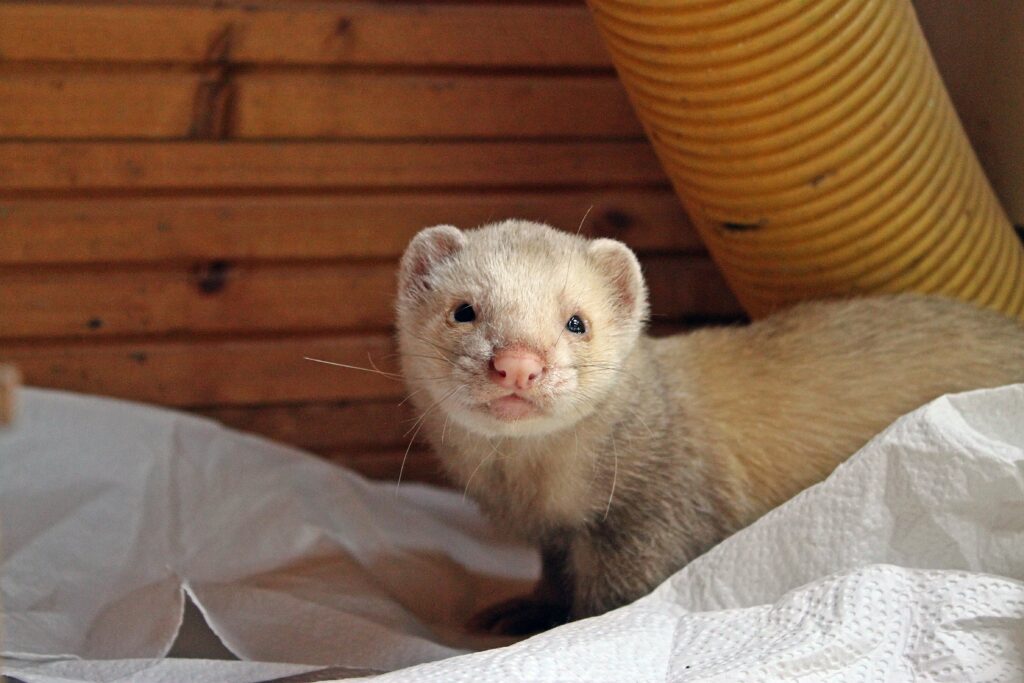
Interaction with other infested animals (e.g., dogs, cats)
When it comes to ferrets getting fleas, one of the primary culprits is their interactions with other infested animals, such as dogs and cats. Fleas are excellent hitchhikers and can easily leap from one animal to another. So, if your furry friend spends time with a canine or feline companion who has a flea problem, there’s a good chance that those pesky critters will find their way onto your ferret’s delicate fur.
It’s important to remember that even if your dog or cat doesn’t show any visible signs of flea infestation, they could still be carrying these unwanted passengers. Fleas are incredibly adept at hiding in thick fur or finding cozy spots on animals where they’re not easily detected.
So, while you may not find fleas on your pet dog or cat during your regular cuddle sessions, it doesn’t mean they’re flea-free. Vigilance is key!
Exposure to outdoor environments with high flea populations
For many ferret parents who allow their furry companions some outdoor playtime, exposure to high flea populations poses another significant risk for flea infestation. Outdoor environments like parks and gardens can harbor fleas in abundance.
These tiny bloodsuckers thrive in warm and humid conditions, making them particularly active during the spring and summer months. When your ferret roams around grassy areas or comes into contact with wild animals like squirrels or stray cats prowling about the neighborhood, they’re more likely to encounter fleas hopping around freely.
These little pests can jump onto your ferret’s body without warning and find their way into its cozy coat within seconds. It’s worth noting that even indoor-only ferrets are not entirely safe from picking up fleas.
Fleas can hitch a ride into your home through clothing, shoes, or even other pets. So, maintaining proper flea prevention measures is crucial regardless of whether your ferret ventures outdoors or not.
Whether it’s through interactions with infested animals or exposure to the great outdoors, ferrets can easily become unsuspecting hosts for fleas. These tiny parasites are skilled at finding their way onto a ferret’s skin and making themselves at home.
However, fret not! In the following sections, we’ll delve into how you can recognize signs of flea infestations in your furry friend and discuss effective prevention and treatment methods to keep those bothersome fleas away from your beloved ferret’s life.
Signs and symptoms of flea infestation in ferrets
Description of typical signs that indicate a ferret has fleas
Fleas can be tiny troublemakers for our furry friends, and ferrets are no exception. If you suspect your playful ferret might be dealing with these pesky parasites, it’s crucial to recognize the signs of a ferret flea infestation. By doing so, you can promptly seek appropriate treatment and bring relief to your furry companion.
One common sign that indicates a ferret has fleas is their irresistible urge to scratch, bite, or excessively groom themselves. Flea bites can cause intense itching and discomfort for these little furballs.
You may notice that your usually energetic and bouncy friend is spending more time scratching or nibbling on their fur, particularly around the neck, back, or tail area. Another telltale sign of fleas in ferrets is the presence of visible adult fleas scurrying around their fur.
These tiny brownish-black creatures are agile jumpers and may occasionally be seen hopping through your pet’s coat. Take a closer look at your ferret’s skin by gently parting their fur with your fingers – if you spot any small insects swiftly moving about, chances are they are adult fleas.
Additionally, keep an eye out for flea dirt on your ferret’s fur. Flea dirt isn’t actually dirt; it’s flea feces consisting mostly of digested blood from earlier feasts on your unsuspecting pet.
It looks like dark specks or pepper-like granules scattered throughout the fur. You can easily confirm whether it is flea dirt by placing some on a damp paper towel – if it leaves behind reddish-brown streaks (due to the digested blood), then it’s indeed flea dirt.
If you observe any combination of these signs in your fuzzy buddy – persistent scratching or biting, visible adult fleas, or the presence of flea dirt – it’s time to take action and get rid of fleas and your ferret of these irritating parasites. Keeping a diligent eye on your ferret’s fur and skin will help you catch any infestation early on, ensuring their comfort and well-being.
Health Risks Associated with Fleas in Ferrets
Overview of Potential Health Issues Caused by Flea Infestations in Ferrets
When it comes to ferrets, fleas are not just a nuisance but can also pose serious health risks. These tiny parasites can cause a range of problems for our furry little friends. Two common health issues associated with flea infestations in ferrets are allergic reactions and dermatitis, as well as common symptoms such as anemia due to blood loss from severe infestations.
Allergic Reactions and Dermatitis
Ferrets, just like other pets, can develop allergies to flea bites. When a ferret has fleas, the saliva from these pesky insects triggers an allergic reaction in some individuals. This allergic response leads to intense itching and discomfort for our ferret companions.
They may scratch excessively, bite their skin, or even develop open sores resulting from their attempts to relieve the irritation. In addition to allergic reactions, fleas can also cause dermatitis in ferrets.
Dermatitis is an inflammation of the skin that occurs when fleas repeatedly bite and feed on the ferret’s skin. This constant irritation leads to redness, swelling, and the formation of small bumps or blisters on their sensitive skin.
Anemia Due to Blood Loss from Severe Infestations
Another significant health risk associated with flea infestations in ferrets is anemia caused by blood loss. Fleas are parasitic insects that survive by feeding on blood.
In severe infestations, large numbers of fleas can drain enough blood from a ferret’s body to cause anemia over time. Anemia occurs when there is a deficiency of red blood cells or hemoglobin—the oxygen-carrying component—in the bloodstream.
It can lead to weakness, lethargy, pale gums, and even collapse in severe cases. Anemic ferrets may exhibit reduced activity levels, experience hair loss, and develop a general lack of vitality.
It is crucial to address flea infestations promptly in ferrets since prolonged exposure to fleas can aggravate these health risks. Seeking appropriate treatment for ferrets with flea infestations and practicing preventive measures typically spot fleas are essential steps in preserving the well-being of our pet ferret companions.
Preventing and Treating Flea Infestations in Ferrets
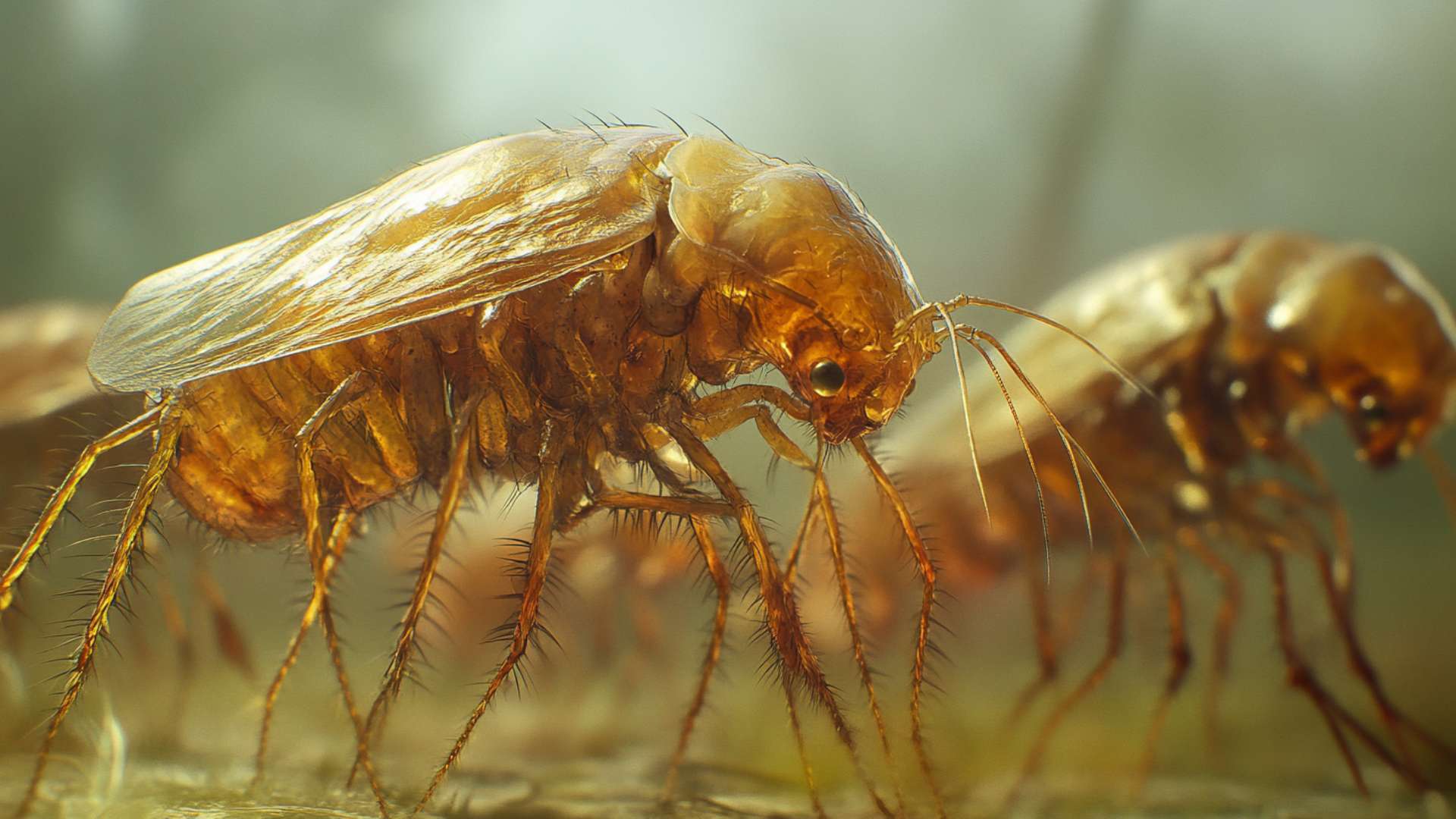
The Importance of Regular Grooming and Hygiene Practices
Ferrets, being naturally clean animals, require regular grooming and hygiene practices to keep them healthy and prevent flea infestations. Grooming not only helps maintain the ferret’s skin and coat health but also acts as a preventive measure against fleas. By regularly inspecting your ferret’s skin for any signs of fleas or skin irritations, you can catch the infestation early on. Bathing with Appropriate Anti-Flea Products
One important aspect of grooming your ferret is bathing. However, it’s crucial to use appropriate anti-flea products specifically designed for ferrets.
Never use flea shampoos or medications intended for flea collars on other animals, such as cat flea products, on your ferret. They can be harmful or even toxic to their delicate systems.
Consult your veterinarian to find a suitable flea shampoo that is safe for your furry friend. When bathing your ferret with an anti-flea shampoo, pay special attention to massaging the product into their fur, ensuring it reaches the skin properly.
Fleas tend to hide deep within the fur close to the skin surface; thus, thorough application is vital. Rinse off all traces of shampoo meticulously as any residue left on their coat may lead to skin allergies or irritations. Regular Use of Veterinarian-Recommended Topical or Oral Treatments
Aside from bathing, using veterinarian-recommended topical or oral treatments is another effective way to prevent and treat flea infestations in ferrets. These treatments are formulated specifically for ferrets’ unique physiology and are usually available in either liquid form applied directly onto their skin or oral medication that they consume.
Topical liquid treatments are easy to administer by parting the fur on the ferret’s neck and applying the liquid directly onto the flea comb the skin. These treatments work by killing adult fleas and preventing their eggs from hatching, thus breaking the flea life cycle.
Oral treatments, on the other hand, are ingested by your ferret and spread throughout their bloodstream. These medications kill fleas when they feed on your ferret’s blood, effectively eliminating them.
However, always consult your veterinarian before administering any oral treatment to ensure it is safe for your specific ferret and that accidental ingestion of the flea medication itself won’t occur. Remember to follow the recommended dosage and frequency of these flea products as instructed by your veterinarian.
Consistency is crucial to ensure long-term prevention and successful treatment of flea infestations in ferrets. By incorporating regular grooming practices, using appropriate anti-flea products during baths, and following veterinarian-recommended topical or oral treatments, you can effectively protect your beloved ferret from these pesky parasites and provide them with a comfortable environment free from fleas.
Environmental Control Measures for Preventing Reinfestation
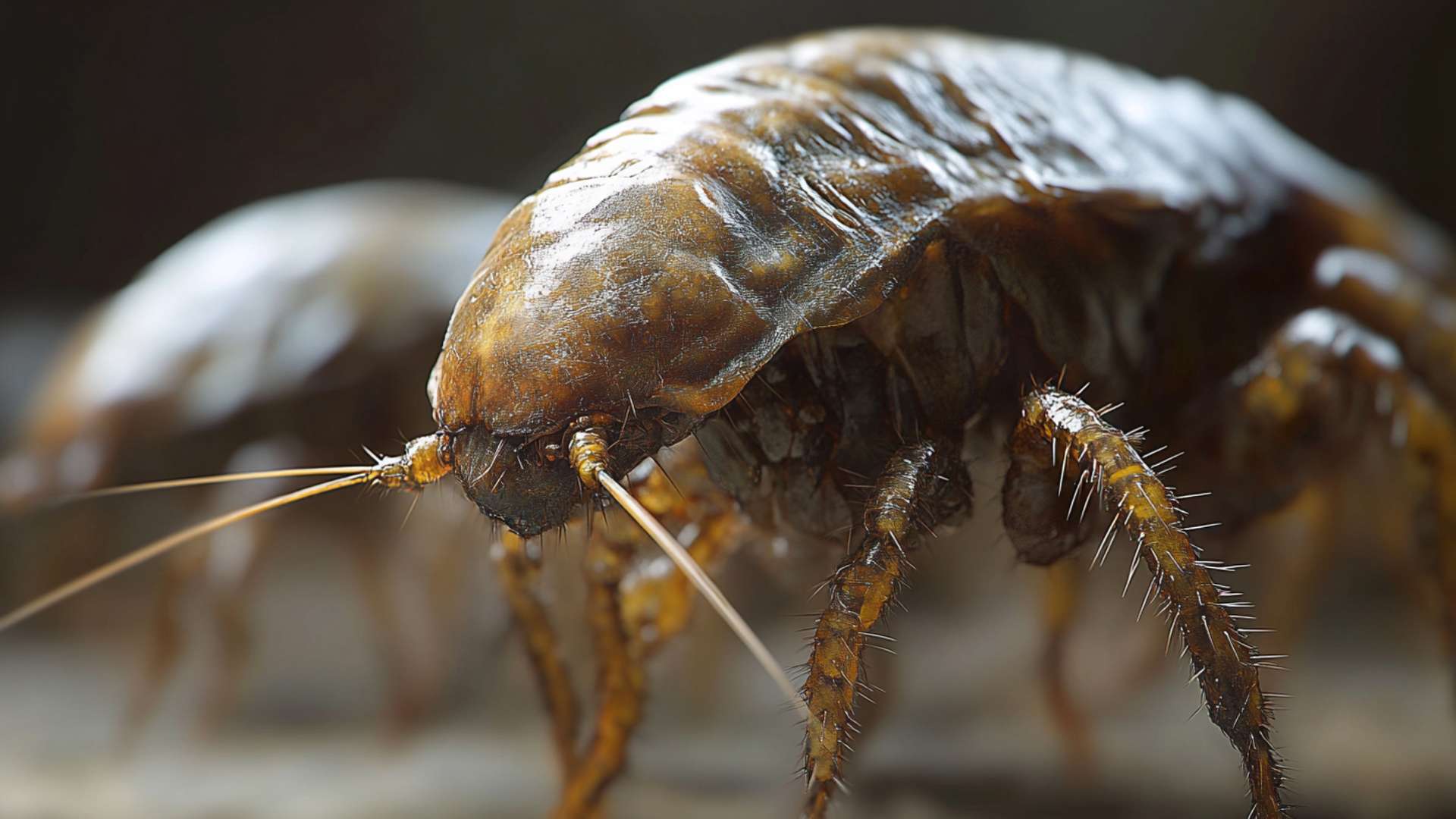
Avoid the Flea Fest: Maintaining a Clean Environment
To keep those pesky fleas at bay and protect your beloved ferret, it’s vital to implement proper environmental control measures. Start by regularly cleaning and vacuuming your home, paying extra attention to areas where your ferret spends most of its time.
Remember, adult fleas can jump quite far and easily hitch a ride on your ferret’s body or even on you! Vacuuming not only removes adult fleas but also helps get rid of their eggs, larvae, and pupae that may be lurking in carpets, bedding, or furniture.
The Irresistible Appeal of Cedar Oils
When it comes to naturally repelling fleas from infesting your pet ferret’s environment, cedar oil is often hailed as an effective solution. The strong scent of cedar oil is known to repel fleas and other pests without causing harm to your furry friend. Consider using cedar shavings or essential oils in areas where your ferret often roams but ensure they cannot accidentally ingest any.
Bid Farewell to Annoying Hitchhikers: Treating Other Pets
If you have other pets in the house like dogs or cats who may inadvertently bring fleas into the home, it’s crucial to maintain their flea protection regime. Regularly treat them with appropriate flea treatments recommended by a veterinarian. Remember that most of flea treatment treatments for dogs are toxic for cats and vice versa; always follow the instructions carefully.
Ensuring Flea-Free Friends: Socialize with Caution
When introducing your pet ferret to other animals during playdates or visits with friends’ pets, be cautious about potential flea transmission. Ensure that the pets they interact with are free from any signs of flea infestations or other external parasites like ear mites. Vigilance and preventive measures can help avoid unwelcome flea guests from jumping ship onto your furry companion.
Conclusion
While fleas may pose a nuisance to your pet ferret, there are effective ways to prevent and control infestations. Through regular cleaning, vacuuming, and the use of natural repellants like cedar oils, you can create an environment that is less enticing to these pesky critters.
Additionally, treating other pets in your household for fleas and being cautious during social interactions can safeguard your ferret from potential infestations. By implementing these environmentally friendly flea control products and measures, you’ll be able to bid farewell to flea-related worries and enjoy a harmonious life with your pet ferret.
Remember, a flea-free ferret means peace of mind for both you and your beloved furry friend. So sleep soundly knowing that you’ve taken all the necessary steps to protect your pet from those unwanted hitchhikers!
Get Flea-Free with D-Termination: The Foremost Pest Control in Las Vegas!

Are you grappling with flea issues at your Las Vegas property? Worry not, for D-Termination is here to provide assistance. Our knowledgeable team is dedicated to eradicating flea infestations and reinstating comfort and serenity in your living space. Bid adieu to fleas—opt for D-Termination for dependable pest control today!
You can get in touch with us at 702-919-6310 or visit dtermination.com to schedule your flea control service and reclaim your space from these bothersome pests.
Frequently Asked Questions:
Signs of fleas on a ferret include excessive scratching, hair loss, and the presence of small black specks in their fur.
Consult a veterinarian for flea treatment specific to ferrets to get rid of fleas effectively.
While it’s rare, humans can get fleas from ferrets, so it’s essential to treat any infestations promptly.
Dog fleas typically don’t thrive on ferrets, as they have specific preferences, but it’s possible for them to bite ferrets temporarily.

